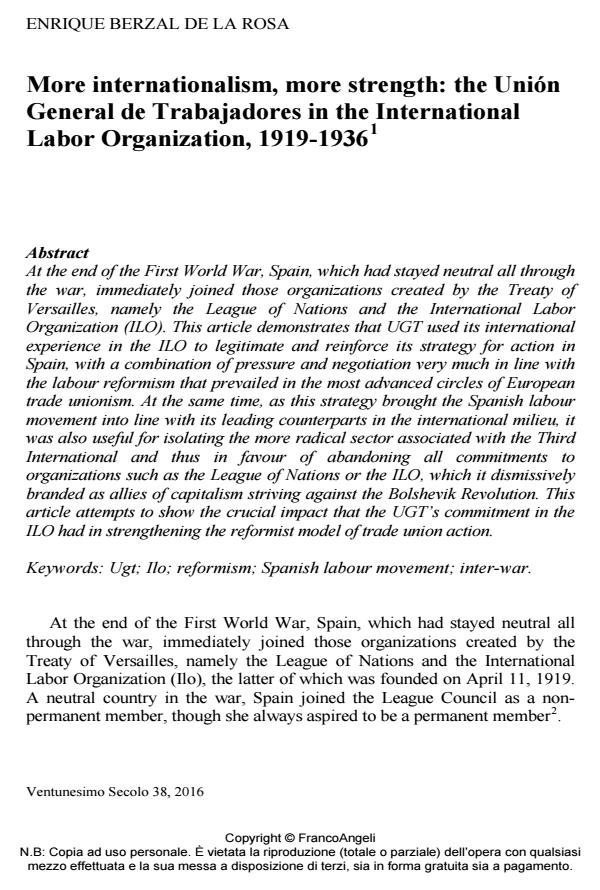More internationalism, more strength: the Unión General de Trabajadores in the International Labor Organization, 1919-1936
Journal title VENTUNESIMO SECOLO
Author/s Enrique Berzal De La Rosa
Publishing Year 2016 Issue 2016/38
Language English Pages 24 P. 34-57 File size 155 KB
DOI 10.3280/XXI2016-038003
DOI is like a bar code for intellectual property: to have more infomation
click here
Below, you can see the article first page
If you want to buy this article in PDF format, you can do it, following the instructions to buy download credits

FrancoAngeli is member of Publishers International Linking Association, Inc (PILA), a not-for-profit association which run the CrossRef service enabling links to and from online scholarly content.
At the end of the First World War, Spain, which had stayed neutral all through the war, immediately joined those organizations created by the Treaty of Versailles, namely the League of Nations and the International Labor Organization (ILO). This article demonstrates that UGT used its international experience in the ILO to legitimate and reinforce its strategy for action in Spain, with a combination of pressure and negotiation very much in line with the labour reformism that prevailed in the most advanced circles of European trade unionism. At the same time, as this strategy brought the Spanish labour movement into line with its leading counterparts in the international milieu, it was also useful for isolating the more radical sector associated with the Third International and thus in favour of abandoning all commitments to organizations such as the League of Nations or the ILO, which it dismissively branded as allies of capitalism striving against the Bolshevik Revolution. This article attempts to show the crucial impact that the UGT’s commitment in the ILO had in strengthening the reformist model of trade union action.
Keywords: Ugt; Ilo; reformism; Spanish labour movement; inter-war
- El papel de las mujeres socialistas en los organismos internacionales durante los años treinta Pilar Domínguez Prats, in Hispania /2018 pp.353
DOI: 10.3989/hispania.2018.009
Enrique Berzal De La Rosa, More internationalism, more strength: the Unión General de Trabajadores in the International Labor Organization, 1919-1936 in "VENTUNESIMO SECOLO" 38/2016, pp 34-57, DOI: 10.3280/XXI2016-038003